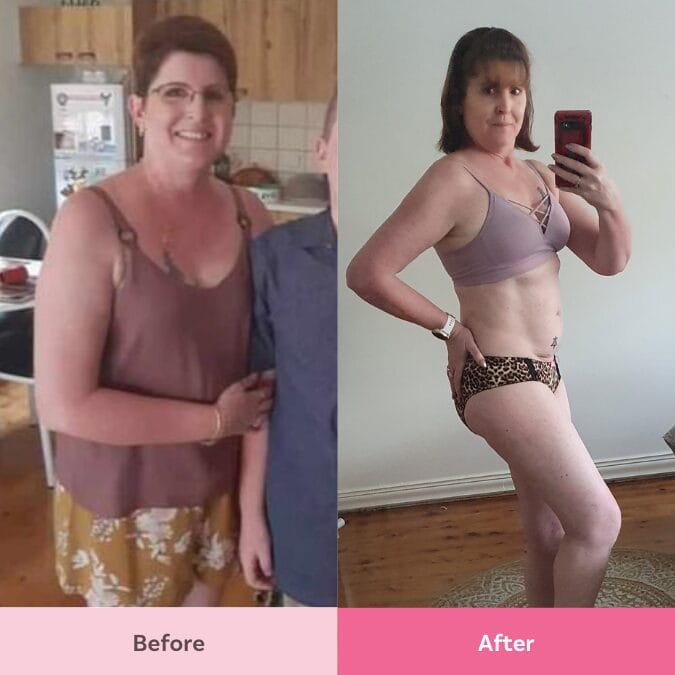What food to include – and not include – in your diet for menopause
Here are some foods you can include in your diet for menopause that will help with symptoms and some that may just hurt.
Menopause is a natural transition every woman goes through. You can include some foods in your diet for menopause that will help with symptoms and some that hurt.
A woman is considered menopausal when she’s not menstruated in 12 consecutive months without contraceptive intervention. This means she can no longer become pregnant naturally. The most common time of menopause for women is, on average, around 51 years old, and symptoms usually occur four years before their last period.
It’s a time of considerable change for a woman with her hormones and body.

During menopause, women tend to gain fat at the same time as losing muscle mass. Some women may also experience symptoms such as hot flashes, irritability, and sleeping problems.
There is some evidence that certain foods may help relieve some symptoms of menopause and other foods that exacerbate it.
Foods to include in your diet for menopause
To help you with the symptoms of menopause, you should ensure your diet for menopause includes these essential foods.
1. Fruit and vegetables
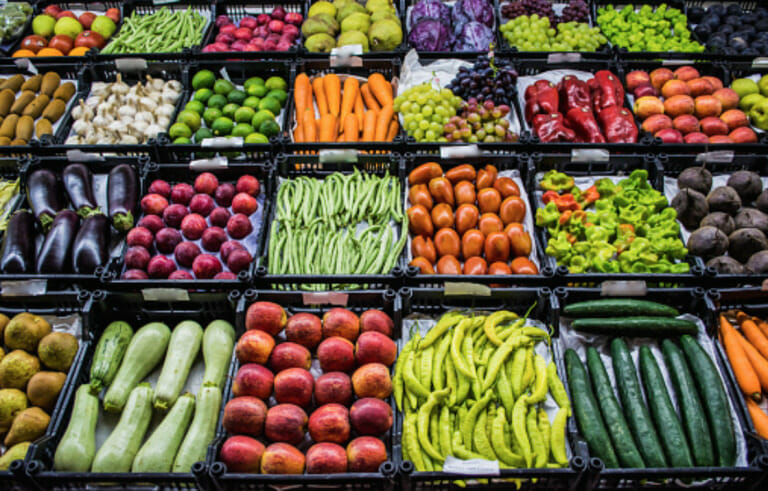
Eating a healthy diet for menopause is crucial in helping to balance your hormones and improve your low mood.
Moreover, many fruits – such as blueberries – and vegetables are rich in antioxidants.
These antioxidant-rich foods may help reduce blood pressure during this time in a woman’s life, also reducing her stress levels.
2. Legumes and nuts
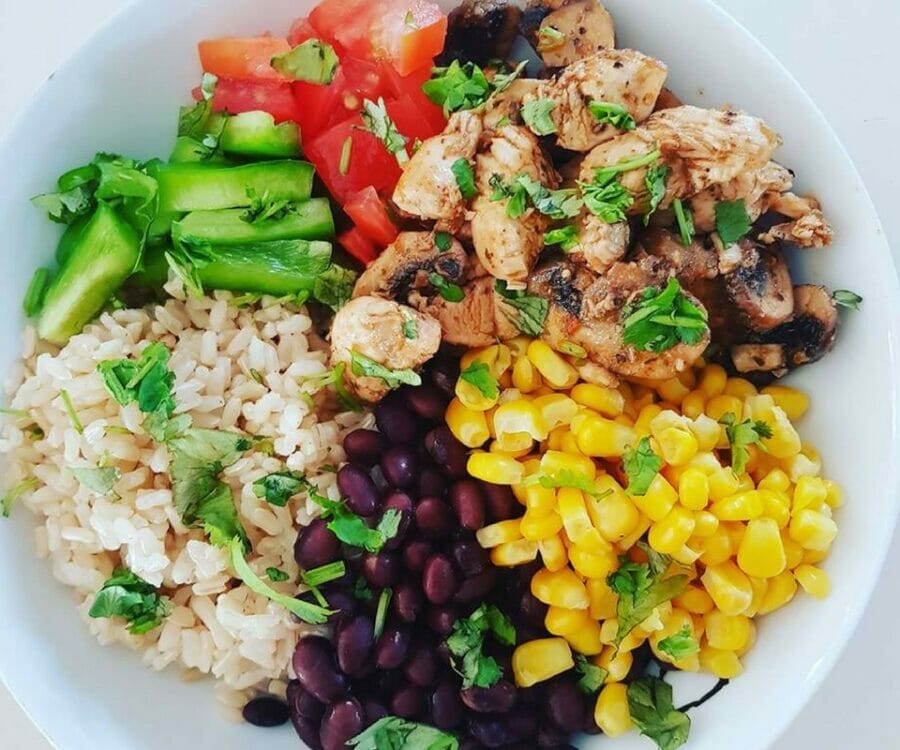
Soybeans, chickpeas, nuts, black tea, barley, grapes and berries contain natural oestrogen, which may help counterbalance the oestrogen that is being reduced during menopause.
The decline in oestrogen during menopause is also linked to decreased bone strength and muscle mass. So finding ways to increase these things through your diet for menopause will help ease your symptoms.
3. Fatty fish
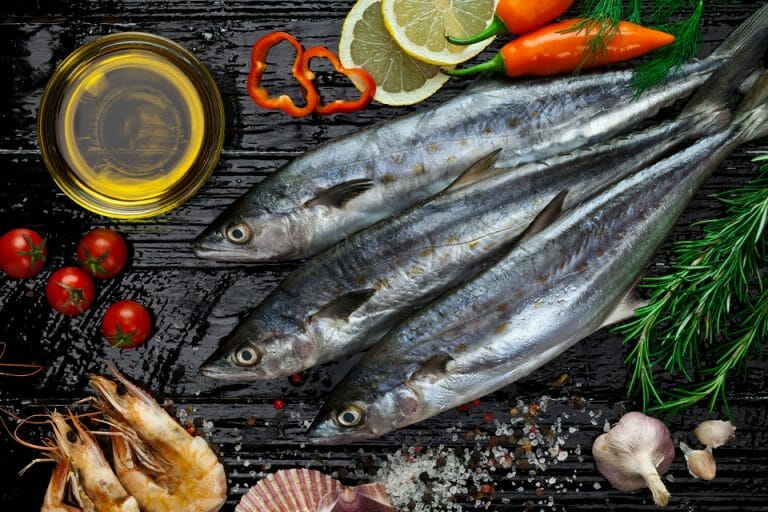
Fatty fish is rich in omega-3, which can help improve your mood and keep your blood levels and blood pressure in check.
4. Dairy

Dairy products, such as milk, yogurt, and cheese, contain calcium and vitamins D and K, which are essential for bone health and therefore perfect to include in a diet for menopause.
5. Protein
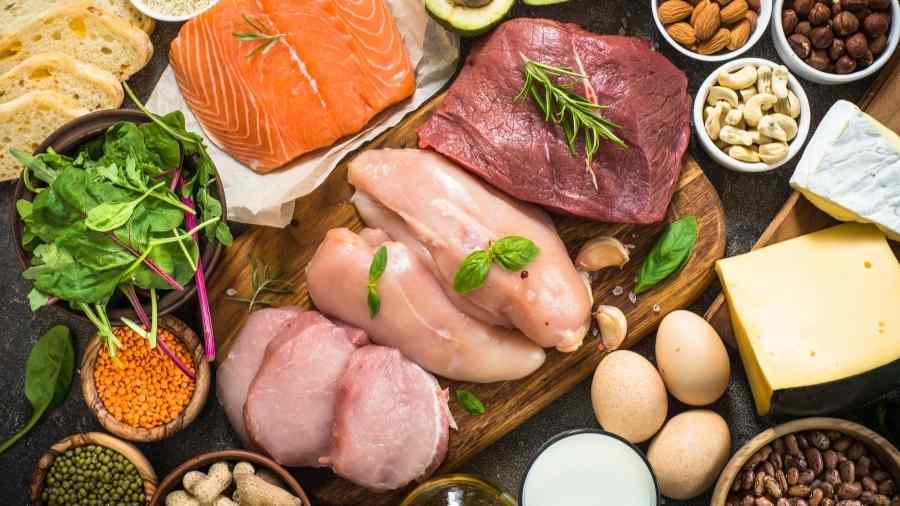
During menopause, women will see a decrease in bone strength and muscle mass due to lower estrogen levels. As such, you should include good quality protein in your diet for menopause to help supplement these decreases.
Food to avoid putting in your diet for menopause
Certain foods will worsen symptoms of menopause, such as hot flashes, interrupted sleep and weight gain. When you’re working on your meal plan and organising your diet for menopause, there are some foods you’ll want to avoid.
1. Sugars and processed carbs

Not only do processed carbs and added sugar make you put on weight, but they can also lower your mood and increase your blood sugar levels, making hot flashes worse.
2. Alcohol

Alcohol can trigger hot flashes in women experiencing menopause. It might also reduce the quality of your sleep.
3. Caffeine

Some studies have suggested caffeine consumption aggravates menopausal symptoms, such as hot flashes and night sweats.
4. Spicy food

There is some evidence that spicy foods increase the number of hot flashes a woman might be experiencing during menopause.
5. Salty foods
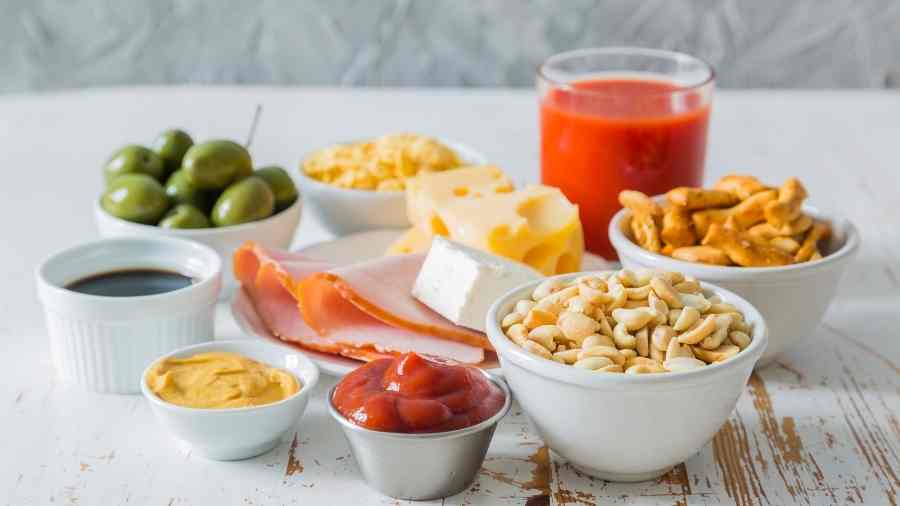
High salt intake has been linked to lower bone density in postmenopausal women. The decline in estrogen in menopause can increase your risk of high blood pressure. Avoiding salty foods in your diet for menopause may also help reduce these risks.
How eating a healthy diet for menopause can help improve the symptoms

Symptoms of menopause like depression, insomnia, anxiety and general sadness should be addressed with your GP, a psychologist or counsellor. However, eating a balanced diet for menopause that includes foods or ingredients that explicitly address the symptoms is paramount.
The following are some more foods to include in your diet for menopause:
Chia seeds are a source of omega-3s, which reduce depression and anxiety.
Oatmeal, which is slow burning, will keep you running all morning and prevent you from crashing and feeling fatigued and hungry.
Kefir has been shown to assist with anxiety and decrease depression. It is rich in tryptophan, which aids with sleep.
Tart cherry juice contains tryptophan, which helps the body produce melatonin. A good amount of melatonin is the sleep hormone that helps the body transition to sleep. Studies suggest that consuming tart cherry juice leads to better and longer sleep.
Dark leafy greens are high in magnesium, which is a great mineral to assist with heartbeat regulation and sleep. Fresh vegetables contain plenty of antioxidants that protect our cells from damage due to free radicals and can help maintain a healthy weight.
According to ancient Chinese medicine, apples, spinach, broccoli, eggs, and green tea are cooling foods that can help cool you down.
Incorporating dairy products, healthy fats, whole grains, fruits, vegetables, foods high in phytoestrogens and quality sources of protein into your diet for menopause may help relieve some symptoms. Avoiding processed carbs, added sugars, alcohol, caffeine, spicy foods and foods high in salt in your diet for menopause may improve symptoms.
Get access to hormone balancing recipes, gentle Yoga, and meditations in our 3 day menopause program
Our three-day plan will help you smooth the hormone fluctuations; so you can feel calm, confident and comfortable in your body.
Our comprehensive 3 day program, will provide you with:
- Meal plans using natural ingredients with hormone balancing properties, including recipes for 3 main meals & 3 healthy snacks per day
- Guided breath-work programs designed to improve oxygen to the brain to counter stress and brain fog, so you’ll feel calmer and clearer
- Guided Yoga, Pilates & Meditations to improve energy, digestion, Pelvic floor and symptoms of PMS
- Podcasts and info-blogs from psychologists, nutritionists and our expert Wellness Team helping you to understand menopause and how to manage it smoothly
- Easy to follow 3 day program guides you on when to take each step to make things super simple and effective
- Everything at your finger tips you can easily access the program from your Healthy Mummy account on your smart device



